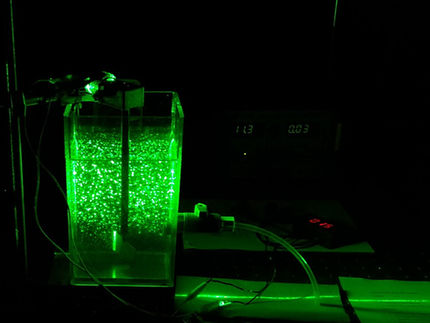MAHLE Inc. Wins Environmental Award for Conserving Water and Reducing Waste
Advertisement
MAHLE Inc.’s Morristown facility for manufacturing automotive and diesel pistons has received a Return on Environment® (ROE) Partnership Award from BetzDearborn. This award recognizes MAHLE’s improved wastewater treatment processes, which have conserved water, eliminated oily wastewater transport and saved the company money.
The ROE Award is presented worldwide to a select group of industrial, commercial and institutional establishments whose strong working relationship with BetzDearborn has resulted in significant environmental, health and safety benefits while at the same time reducing operating costs.
"The results of MAHLE’s efforts are proof that a high environmental profile is not inconsistent with improved productivity and profitability," said BetzDearborn Central Region Vice President Fred Klemencic in presenting the award.
MAHLE, Inc. President Hans D. Jehle accepted the award, a hand-crafted Irish crystal globe depicting the earth enclosing a chemical flask. "I want to thank both our MAHLE employees and our BetzDearborn associates who worked very hard to win this award. We firmly believe that what is good for the environment can be good for business, too," Jehle said during the presentation ceremony. MAHLE is now pursuing ISO 14001 certification, the new global environmental standard for manufacturers.
BetzDearborn and MAHLE personnel worked together to reduce the amount of wastewater and the costs associated with it during the past year. After extensive bench testing, BetzDearborn selected proprietary cationic coagulant and polymeric flocculant products that successfully treated a combination of general and oily wastewater, eliminating the need for ultrafiltration and disposal of oily wastewater. MAHLE’s older system was replaced and a successful trial period proved the new process’s effectiveness.
Approximately 72,000 gallons of clean water will be recovered annually through this process and a significant amount of oily wastewater has been eliminated. The levels of total suspended solids and biological oxygen demand were also reduced. Eliminating the need to transport oily waste led to decreased potential air emissions.











































